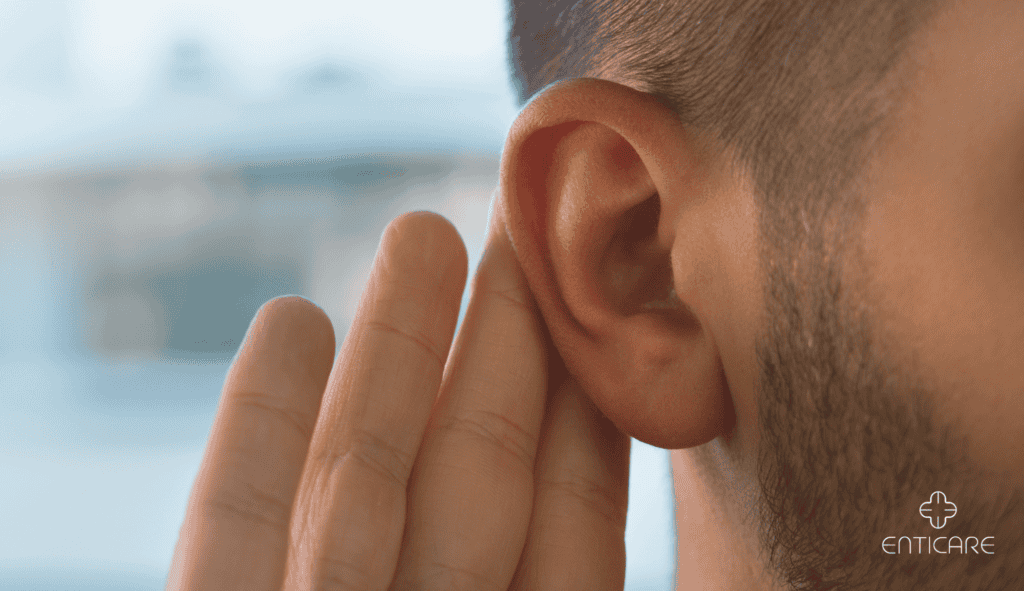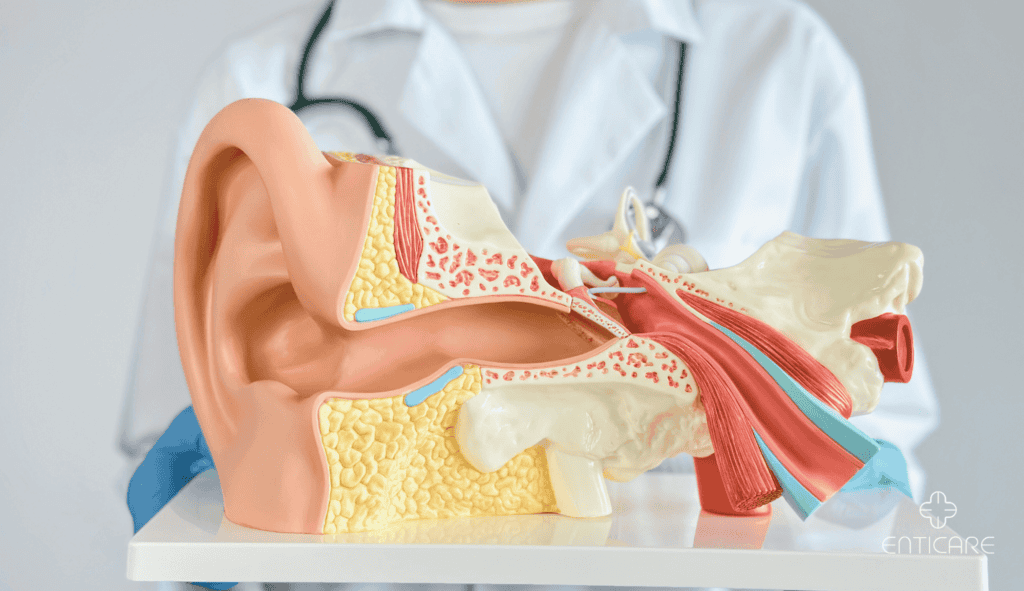Hearing loss can be frustrating, isolating, and disruptive to your daily life. If you find yourself asking, “What kind of hearing doctor should I see for my hearing loss?”—you’re not alone. With the variety of hearing-related professionals available in the hearing healthcare field, navigating the right path can seem overwhelming. Whether you’re experiencing mild, moderate, or severe hearing loss, knowing which healthcare professional to turn to is the first step toward reclaiming your hearing and improving your quality of life.
In this guide, we will explain the different types of specialists who treat hearing loss, their roles in the diagnostic process, and when you should schedule an appointment.

Understanding Your Hearing Loss
Before diving into which specialist to see, it’s crucial to understand the different types of hearing loss. If you are experiencing trouble hearing, such as difficulty understanding conversations or needing to ask others to repeat themselves, it’s important to seek professional help. The more familiar you are with your symptoms, the better equipped you will be to seek the right help. A hearing evaluation is essential in understanding your hearing loss.
Types of Hearing Loss
Conductive Hearing Loss: This type occurs when sound cannot efficiently pass through the outer or middle ear due to blockages, infections, or other obstructions. This often requires medical intervention.
Sensorineural Hearing Loss: This happens when the inner ear or auditory nerve gets damaged. Aging, noise exposure, or illness typically cause it, and it often leads to permanent hearing damage.
Mixed Hearing Loss: A combination of conductive and sensorineural hearing loss. Both the outer or middle ear and the inner ear may be damaged or affected, requiring a multidisciplinary approach to treatment.
Understanding Hearing Loss Specialists
Hearing care specialists are healthcare professionals dedicated to diagnosing, treating, and managing hearing loss and related disorders. Each type of specialist brings unique expertise to the table, ensuring comprehensive care for individuals experiencing hearing difficulties.
Audiologists and Their Role
Audiologists are highly trained medical professionals with a doctoral degree in audiology, dedicated to promoting hearing health. They specialize in evaluating, diagnosing, and treating hearing loss and balance disorders. Audiologists can focus on various areas, including pediatrics, geriatrics, hearing aids, and auditory processing. They are licensed to fit, dispense, and program hearing aids and other listening devices, making them essential in managing hearing loss.
Audiologists use a range of tests, such as audiograms, pure-tone audiometry, and speech audiometry, to assess a patient’s hearing. They can also diagnose auditory processing disorders, often referred to as “hidden hearing loss.” Beyond diagnosis, audiologists provide valuable guidance on coping with hearing loss and improving communication, ensuring patients receive comprehensive care tailored to their needs.
Hearing Instrument Specialists
Hearing instrument specialists (HIS) are state-licensed professionals who focus on evaluating hearing problems and selecting and fitting hearing aids. They often work in retail hearing clinics and primarily serve adult populations with common types of hearing loss. While HISs are trained to administer hearing tests and interpret results, they may not have the same level of education or training as audiologists.
HISs play a crucial role in the ongoing care and maintenance of hearing aids. They provide follow-up care, tailor the programming and fit of hearing aids to a patient’s lifestyle, and troubleshoot any issues that arise. Although they may not diagnose or treat complex hearing-related issues, HISs are invaluable in ensuring that hearing aids function optimally and meet the specific needs of each patient.

Choosing the Right Specialist for Your Needs
Choosing the right specialist for your hearing needs can be a daunting task, especially with the various types of hearing professionals available. To make an informed decision, it’s essential to understand the roles and specialties of each professional. Here’s a brief overview to help you choose the right specialist for your needs:
- Audiologists: These healthcare professionals specialize in evaluating, diagnosing, and treating hearing loss and balance disorders. They can fit, dispense, and program hearing aids and other listening devices, making them a comprehensive choice for managing hearing loss.
- Hearing Instrument Specialists (HIS): HIS are state-licensed professionals who evaluate hearing problems and select and fit hearing aids. They often work at retail hearing clinics and focus on adult populations with common types of hearing loss. HISs are particularly skilled in the ongoing care and maintenance of hearing aids.
- Otolaryngologists (ENTs): ENTs are medical doctors who diagnose and treat diseases and disorders of the ear, nose, throat, and related structures of the head and neck. They can provide medical and surgical care for patients with hearing loss, addressing a wide range of ear-related concerns.
- Otologists: Otologists are ENTs who have further specialized in ears and their related structures. They provide medical and surgical care for patients with diseases and disorders that affect the ears, balance system, and base of the skull.
- Neurotologists: Neurotologists are specialists who focus on surgical intervention for hearing disorders resulting from problems deep within the temporal bone or base of the skull. They work with neurosurgeons to correct diseases and disorders of the cranial nerves.
When choosing a specialist, consider the following factors:
- Your specific hearing needs: If you’re experiencing hearing loss, balance disorders, or tinnitus, an audiologist or ENT may be the best choice. If you’re looking for a hearing aid, a HIS or audiologist can help.
- Your age: Pediatric audiologists specialize in treating infants and children with hearing loss, while adult populations may benefit from seeing a HIS or audiologist.
- Your location: Consider the location of the specialist’s office and whether they offer virtual visits or shared medical appointments.
By understanding the roles and specialties of each professional, you can make an informed decision and choose the right specialist for your hearing needs.
When to See an Audiologist
An audiologist, also known as a hearing specialist, serves as the first line of defense when it comes to hearing issues by conducting a hearing assessment. These licensed professionals specialize in diagnosing and treating various types of hearing loss. They perform comprehensive tests to assess your hearing and provide suitable recommendations for treatment, whether that be hearing aids, therapy, or further consultation.
Should I See an ENT Specialist?
ENT (Ear, Nose, and Throat) doctors, also known as hearing doctors or otolaryngologists, treat conditions related to the ears and balance. If you’re experiencing recurring ear infections, sudden hearing loss, or balance problems, seeing an ENT might be the best choice for you. They can evaluate and manage a wide range of ear conditions, often working closely with audiologists when surgical intervention is necessary.
When to Visit a Hearing Instrument Specialist
If you’ve already been diagnosed with hearing loss and know you’ll need a hearing aid, a hearing instrument specialist (HIS) could be a good option. Unlike audiologists, hearing instrument specialists do not diagnose hearing loss but focus solely on helping you choose and fit hearing aids. Instead, they focus solely on hearing aids—helping you choose, fit, and perform hearing aid maintenance on your devices.

Getting Help for Hearing Loss
If you’re experiencing hearing loss, it’s essential to seek help from a qualified professional. Here are some steps to take:
- Schedule an appointment with your healthcare provider: Your primary care physician can refer you to a hearing specialist, such as an audiologist or ENT.
- Get a hearing test: A comprehensive hearing evaluation can help determine the type and severity of your hearing loss.
- Consult with a hearing specialist: An audiologist or ENT can assess your hearing and provide recommendations for treatment.
- Explore treatment options: Depending on the cause and severity of your hearing loss, treatment options may include hearing aids, cochlear implants, or other devices.
Additional tips:
- Don’t delay seeking help: The sooner you address your hearing loss, the better your chances of improving your communication and overall quality of life.
- Be open with your specialist: Share your concerns, symptoms, and medical history to ensure you receive the best possible care.
- Ask questions: Don’t hesitate to ask your specialist about your treatment options, the risks and benefits of each, and what to expect during the treatment process.
By taking these steps, you can get the help you need to address your hearing loss and improve your overall well-being.
Taking Action on Your Hearing Loss
Choosing the right hearing professional for your hearing loss can make all the difference in your recovery. Whether you need the diagnostic expertise of an audiologist, the medical intervention of an ENT, the precision of a hearing instrument specialist, or the comprehensive evaluation of a neurologist, each professional plays an essential role in restoring your hearing and improving your overall well-being.
Don’t wait to seek help—hearing loss can worsen over time if left untreated. Take the first step toward better hearing rehabilitation by scheduling an appointment with one of our specialists today.
Click here to schedule your consultation and get personalized care for your hearing needs!

